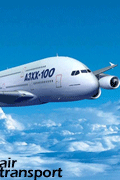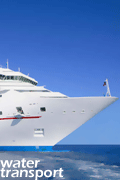Tuesday, October 27, 2009
WASHINGTON - The Federal Motor Carrier Safety Administration (FMCSA) proclaimed 77 commercial bus and truck drivers are off the road and over 80 carriers face enforcement action as a result of FMCSA's first national drug and alcohol strike force.
From September 8 to September 18, 2009 FMCSA safety investigators inspected the drug and alcohol safety records of commercial drivers employed by bus companies, together with school bus drivers, interstate passenger carriers, hazardous material transporters and general freight long-haul trucking companies.
"Safety is the number one priority for the Department of Transportation. Parents need to know when they put their child on a school bus that the driver will get them there safely and that they are drug and alcohol free," said U.S. Transportation Secretary Ray LaHood. "Violators of our drug and alcohol policies have no business driving a commercial vehicle. Programs like the drug and alcohol strike force are helping remove the most dangerous offenders from our roadways."
The 77 commercial drivers who face the prospect of civil penalties for failing to stick on to federal drug and alcohol regulations can no longer operate a commercial motor vehicle and will likely face a pecuniary fine. Additionally, 84 commercial carriers face pending enforcement action for violations such as using a driver that has tested positive for prohibited drugs and for not instituting a drug and alcohol testing program.
The goals of the strike force were to recognize motor carriers in violation of federal drug and alcohol testing requirements and to remove from the road commercial truck and bus drivers who skip from carrier to carrier to try and evade federal drug and alcohol testing and reporting requirements.
Both drivers and carriers will have an opportunity to challenge the alleged violations and the amount of the civil penalties.
From September 8 to September 18, 2009 FMCSA safety investigators inspected the drug and alcohol safety records of commercial drivers employed by bus companies, together with school bus drivers, interstate passenger carriers, hazardous material transporters and general freight long-haul trucking companies.
"Safety is the number one priority for the Department of Transportation. Parents need to know when they put their child on a school bus that the driver will get them there safely and that they are drug and alcohol free," said U.S. Transportation Secretary Ray LaHood. "Violators of our drug and alcohol policies have no business driving a commercial vehicle. Programs like the drug and alcohol strike force are helping remove the most dangerous offenders from our roadways."
The 77 commercial drivers who face the prospect of civil penalties for failing to stick on to federal drug and alcohol regulations can no longer operate a commercial motor vehicle and will likely face a pecuniary fine. Additionally, 84 commercial carriers face pending enforcement action for violations such as using a driver that has tested positive for prohibited drugs and for not instituting a drug and alcohol testing program.
The goals of the strike force were to recognize motor carriers in violation of federal drug and alcohol testing requirements and to remove from the road commercial truck and bus drivers who skip from carrier to carrier to try and evade federal drug and alcohol testing and reporting requirements.
Both drivers and carriers will have an opportunity to challenge the alleged violations and the amount of the civil penalties.
posted by transport blogs
@ 5:34 AM
permanent link | Post a Comment
|
![]()








